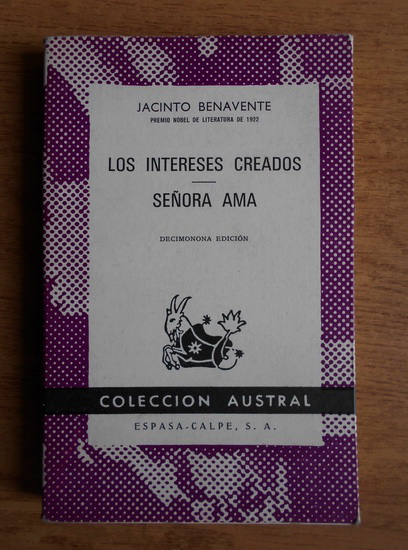


His 1928 play Para El Cielo y Los Altares ( Toward Heaven and the Altars), which foretold the Spanish monarchy's fall, was prohibited by the government and led to his being arrested years later during the Spanish Civil War. Primarily known for his work in Spain and Latin America, several of Benavente's plays reached London's West End and Broadway, including Saturday Night (1926), starring Eva La Gallienene, which ran for two years in New York. As he grew older his work came to be thought of as antiquated, falling out of favor with younger writers who protested when he was awarded the Nobel Prize for Literature in 1922. Benavente became a member of the Spanish Academy in 1913, though his gay identity was fairly common knowledge. His other successes included La Gobermadora ( The Governor’s Wife) in 1901, the sentimental comedy Rosas de Otono ( Autumn Roses) in 1905, his favorite Señora Ama ( The Lady of the House) in 1908, and the rural tragedy La Malquerida ( The Passion Flower) in 1913. His most frequently produced play, often referred to as his masterpiece, was 1907's Los Intereses Creados ( The Bonds of Interest), a work based on the Italian commedia del Varte. Though his work was diverse in tone, ranging from tragedy to melodrama to comedy – his primary forte was comedies of manners and one-act farces. His first genuine successes came with El Nido Ajeno ( Another’s Nest) in 1894 and Gente Conocida ( High Society) in 1896. That same year he began working as a dramatist.

At 26 he published a book of poems followed by a series of women's letters – Cartas de Mujeres (1892) – which made his reputation as a stylist. Prolific playwright Jacinto Benavente was born in Madrid. “Everyone thinks that having a talent is a matter of luck no one thinks that luck could be a matter of talent.”


 0 kommentar(er)
0 kommentar(er)
